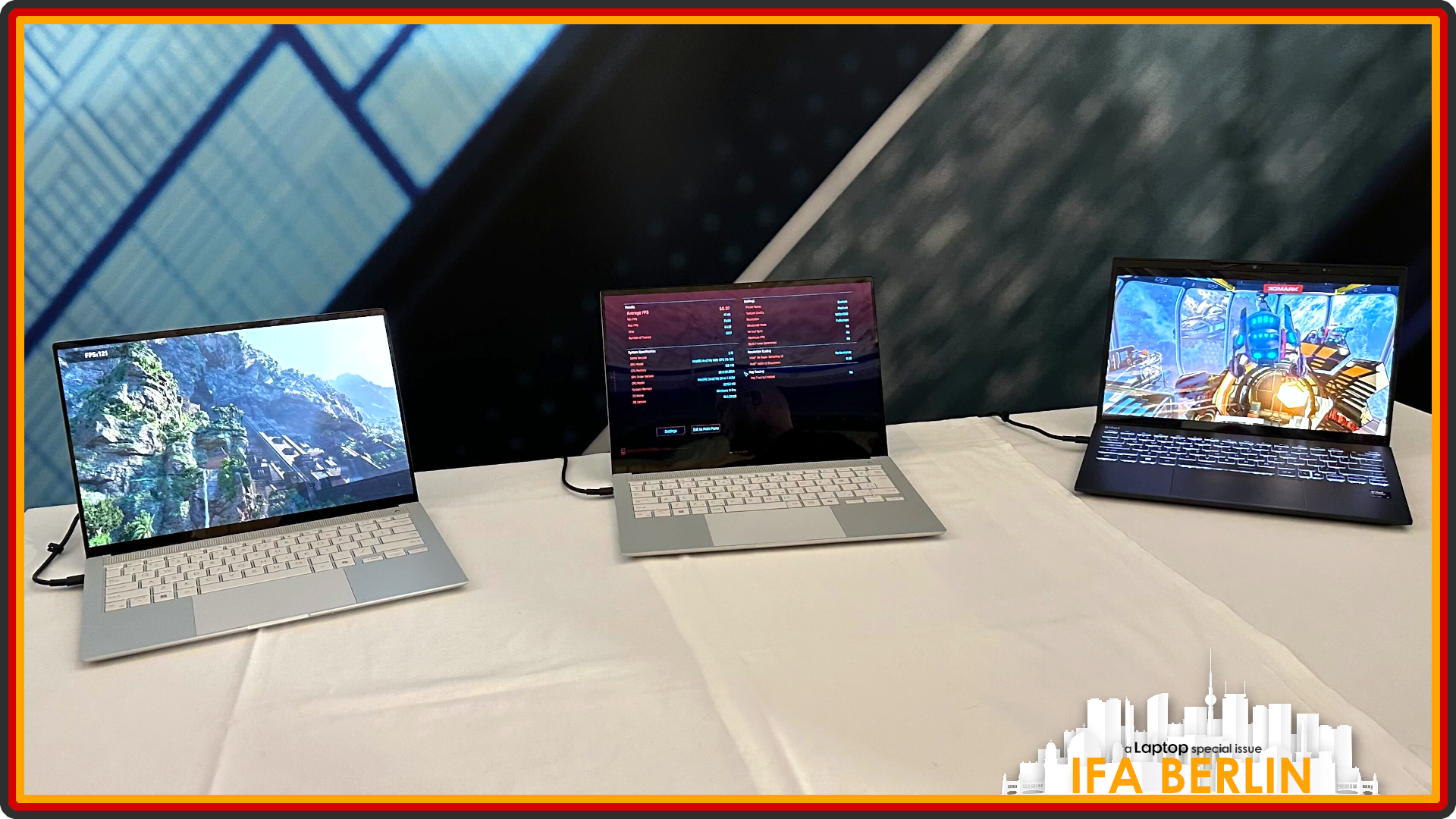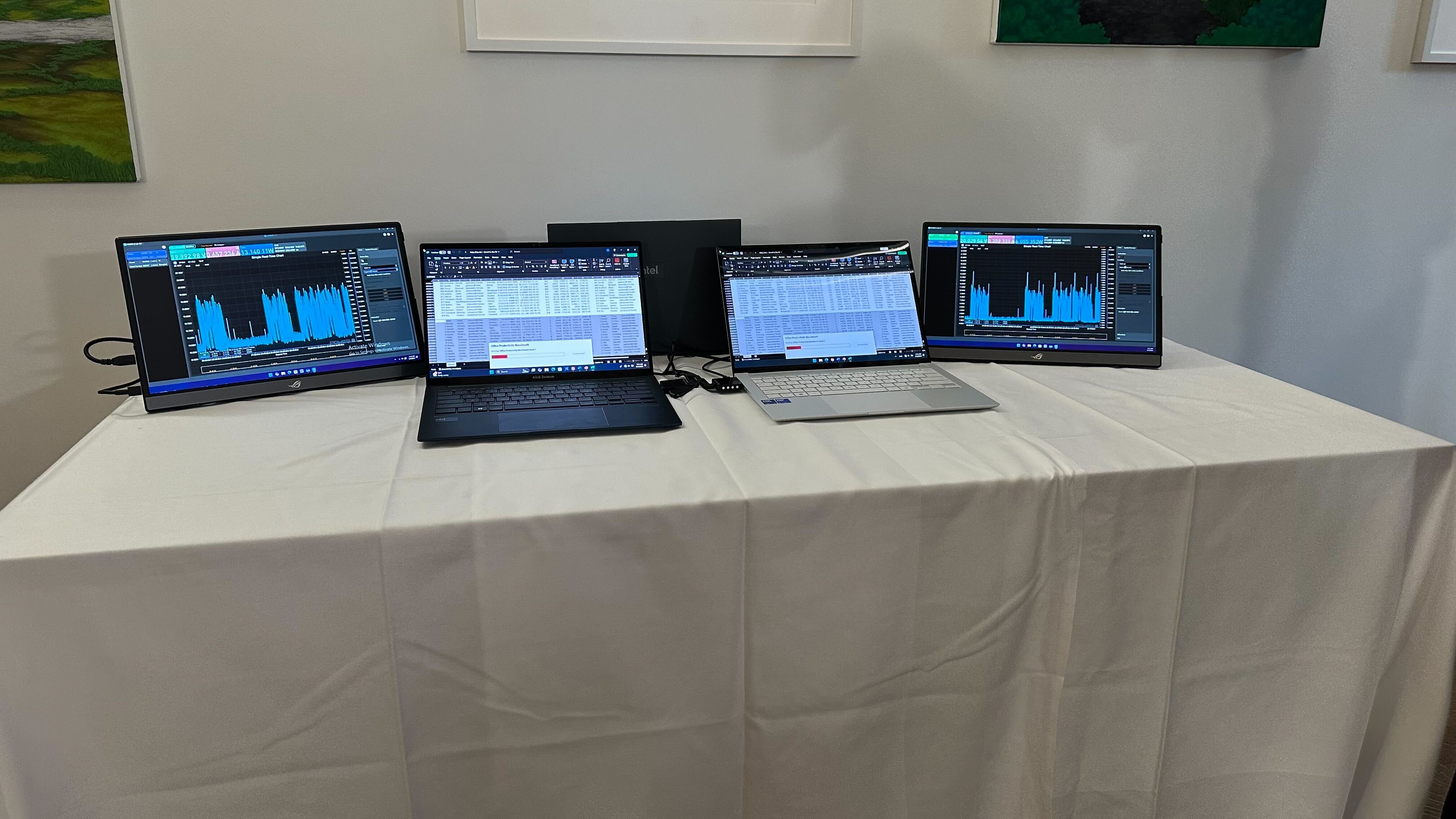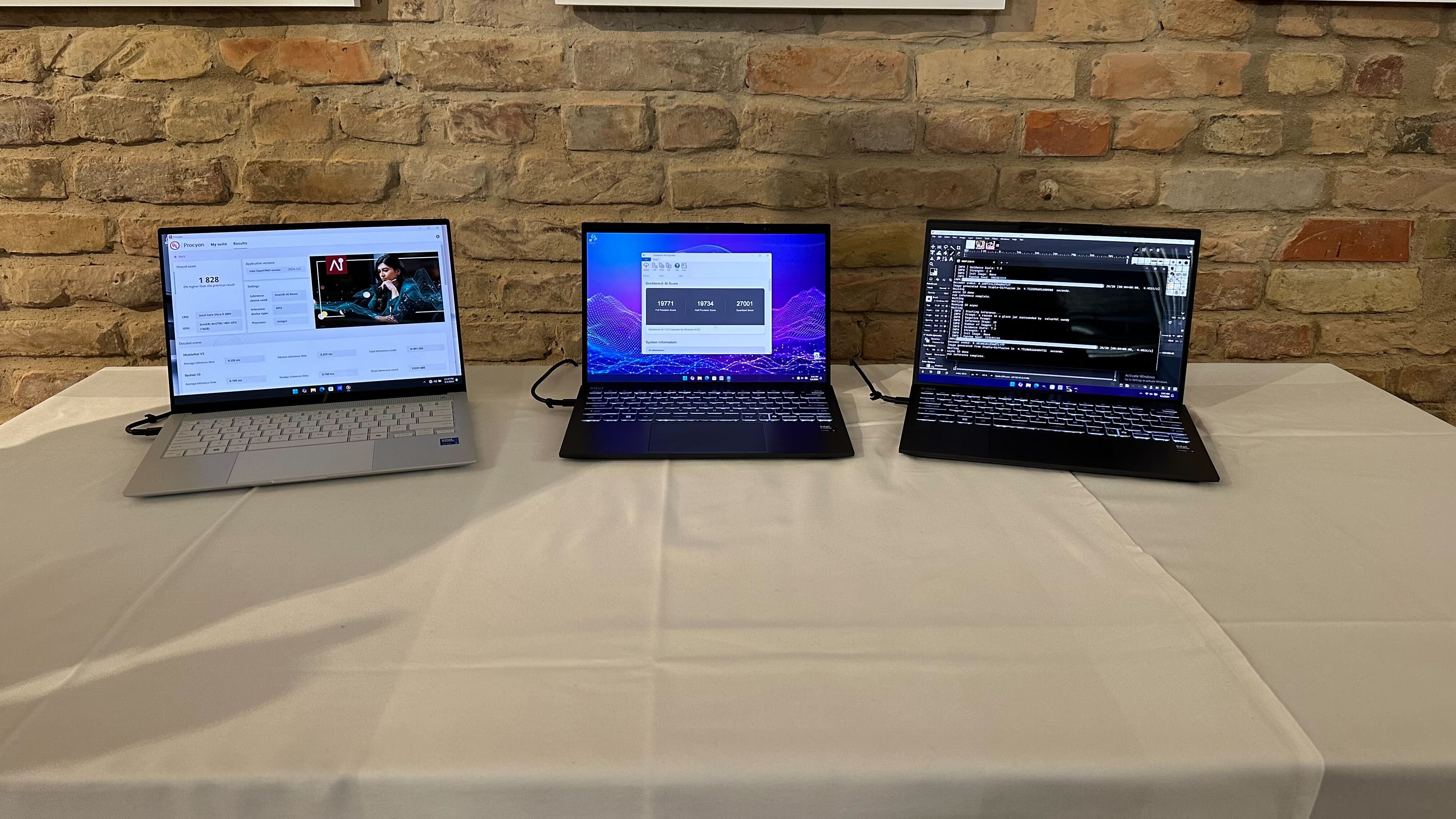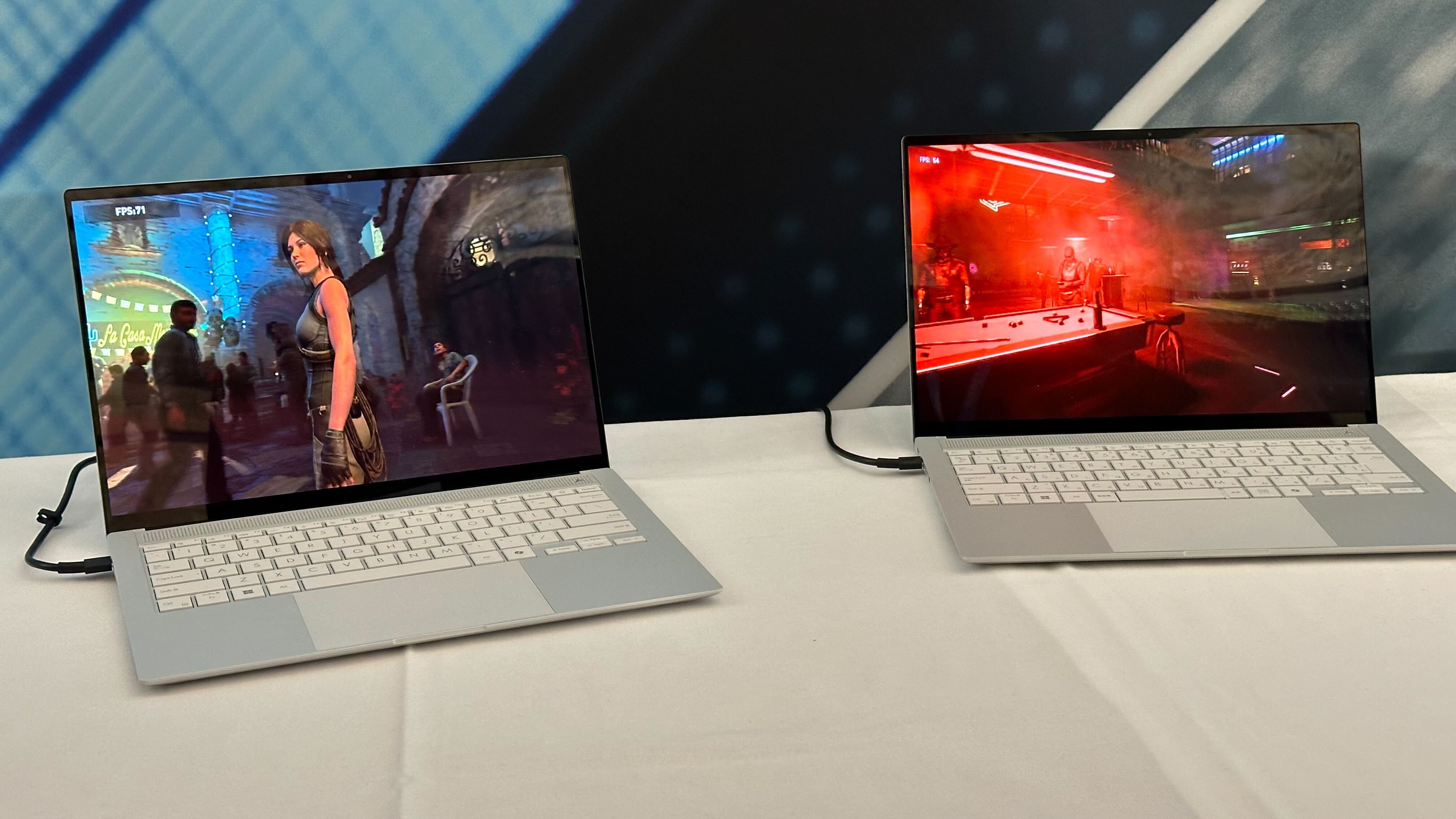
Intel has made plenty of claims about the performance of the new Intel Core Ultra 200V "Lunar Lake" chipsets, but how do they actually handle when put to the test?
Just ahead of the IFA Berlin conference, Intel officially launched the new Intel Core Ultra 200V "Lunar Lake" chipsets. The global launch event included a tech rundown of the silicon and various gaming, productivity, security, and AI demos, as well as a preview of the expected performance of Lunar Lake laptops.
The performance preview included an entire suite of consumer laptops from various OEM partners running a series of AI, productivity, and gaming benchmarks. As a former lab tester for Laptop Mag, I always get excited about benchmark results because those repeatable numbers give us a great point of comparison.
Intel tested its new Lunar Lake systems on popular benchmarks like the UL Procyon suite, 3DMark, Geekbench AI, Shadow of the Tomb Raider, and Cyberpunk 2077.
So, as a former tester turned laptop reviewer, I felt it was my duty to provide the best possible breakdown of how well Lunar Lake compares to its competition from Apple, AMD, and Qualcomm.

Intel Core Ultra 200V: How do the benchmarks stack up?

Intel ran the UL Procyon Office Productivity benchmark on demo units of the Lunar Lake and Meteor Lake generations side-by-side for a direct generation-to-generation comparison.
Intel ran the benchmark with the laptops set to the "Best Performance" profile in Windows Settings. The Intel Core Ultra 200V Lunar Lake laptop returned a benchmark score of 7,713 while the Intel Core Ultra 100 Meteor Lake laptop scored just 6,630. A bit of simple math later, and that is a 16% increase in office productivity with Lunar Lake.

Office productivity doesn't tell the whole story. Intel also tested the new Intel Core Ultra 200V systems on the UL Procyon Computer Vision and Geekbench AI benchmarks to measure machine learning.
The demo Intel Core Ultra 200V systems scored 1,828 on the UL Procyon Computer Vision benchmark. On Geekbench AI, the same demo unit kicked back a Full Precision score of 19,771 and a Quantized score of 27,001.
To compare, I pulled up our testing data for the Qualcomm Snapdragon X Elite XIE-80-100-powered Microsoft Surface Pro 11 and the M3-powered Apple MacBook Air 13.
The Microsoft Surface Pro 11 scored 1,703 on the UL Procyon Computer Vision benchmark and on Geekbench AI kicked back a Full Precision score of 2,231 and a Quantized score of 18,901.
The Apple MacBook Air 13 did not run the UL Procyon benchmark, but our testing labs did go back and run Geekbench AI on the laptop after its launch. The MacBook Air kicked back a Full Precision score of just 2,474 on Geekbench AI and a Quantized score of 14,861.

For a better picture of the gaming capabilities of the integrated Intel Arc graphics of the Lunar Lake SoC, Intel also showcased demo units running the 3DMark Solar Bay benchmark with ray tracing enabled, Shadow of the Tomb Raider on Medium settings at 1080p resolution with XeSS super sampling enabled, and Cyberpunk 2077 on Medium settings at 1080p resolution with XeSS super sampling enabled.
To see how Lunar Lake holds up on gaming, I pulled our testing results for the AMD Ryzen AI 9 HX 370-powered Asus Zenbook S16 as well as the Apple MacBook Air 13 M3.
The Intel demo unit scored 15,894 on Solar Bay, while the Zenbook S16 scored 14,602 on Solar Bay, indicating the Lunar Lake laptop is 8% better than the AMD competition.
The Intel demo unit also scored 74 FPS on Shadow of the Tomb Raider, though that is with XeSS super sampling enabled. Our lab does not test using super sampling technology to ensure we're testing the pure silicon performance, so the Zenbook and MacBook Air fared poorly in comparison. The Zenbook S16 averaged just 27 FPS on Shadow of the Tomb Raider at 1080p while the MacBook Air 13 averaged 25 FPS at the closest available resolution (1,920 x 1,200).
We did not test Cyberpunk 2077 on the Zenbook or MacBook Air, but the Intel demo unit managed a solid 60.37 FPS with XeSS enabled on Medium settings at 1080p which is better than most gaming handhelds.
Of course, these benchmarks were all run by Intel, meaning we'll have to see exactly how the systems stack up when we get Lunar Lake review units in our labs to be sure the systems are tested exactly and fairly. That said, based on this preview, it seems Lunar Lake will not only close the gap against its competition but potentially come out on top.

Laptop Mag's IFA Berlin 2024 Issue celebrates one of the world's longest-running consumer tech expos, Germany's own Internationale FunkAusstellung Berlin.
Our on-the-ground team will bring you all the news emerging from the showroom floor of Messe Berlin and highlight the best in consumer tech as we announce our inaugural Laptop Laurel winners for best-in-show products.
Head over to Laptop Mag's IFA Berlin 2024 Issue for more coverage.







